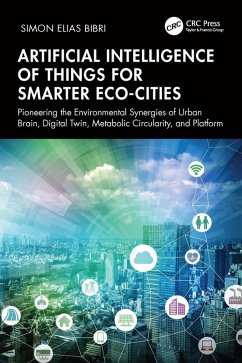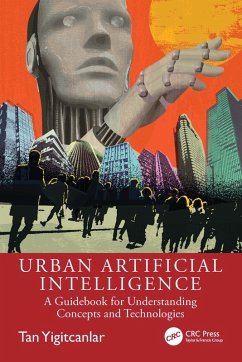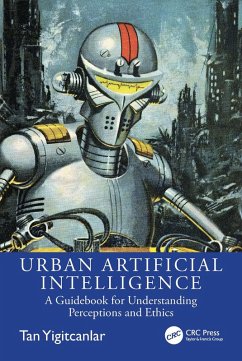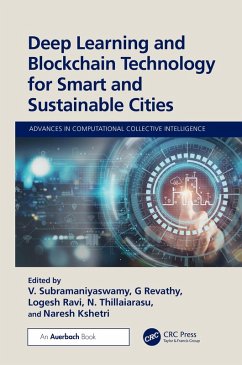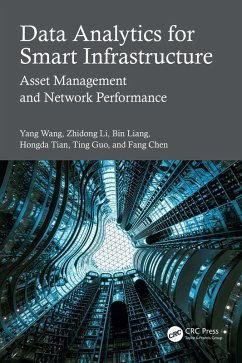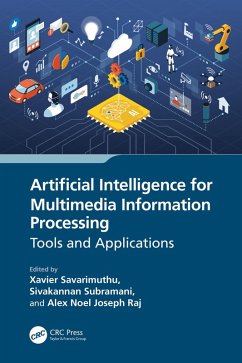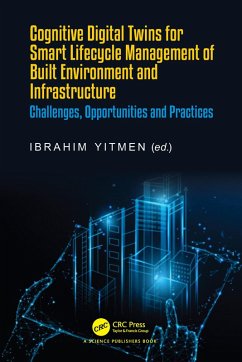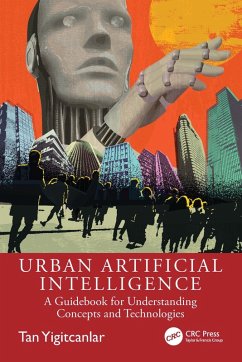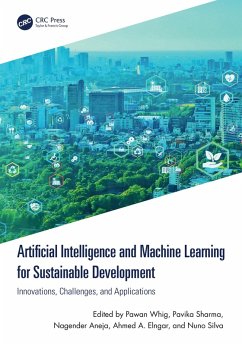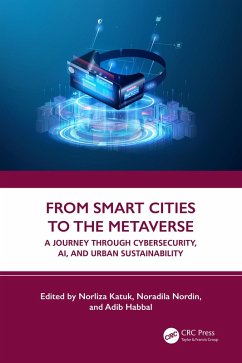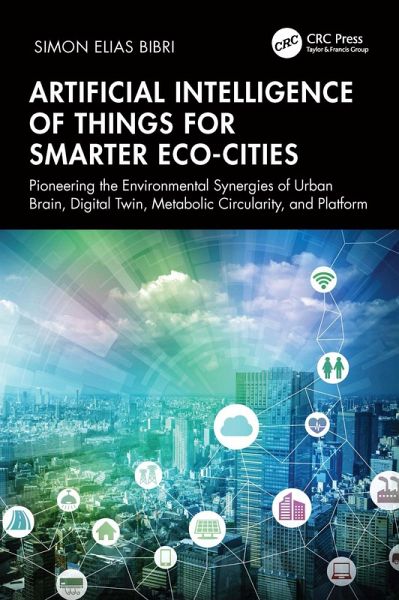
Artificial Intelligence of Things for Smarter Eco-Cities (eBook, PDF)
Pioneering the Environmental Synergies of Urban Brain, Digital Twin, Metabolic Circularity, and Platform
Versandkostenfrei!
Sofort per Download lieferbar
94,95 €
inkl. MwSt.
Weitere Ausgaben:

PAYBACK Punkte
47 °P sammeln!
This book takes readers on a captivating journey into the transformative role of Artificial Intelligence (AI) and AI of Things (AIoT) technologies in reshaping sustainable urban development. By combining comprehensive theoretical analyses, synthesized empirical evidence, and practical case studies, it offers pioneering interdisciplinary insights and unifying frameworks. The book highlights the synergistic integration of Urban Brain (UB), Urban Digital Twin (UDT), Smart Urban Metabolism (SUM), and platform urbanism, underscored by their collaborative potential to revolutionize the environmental...
This book takes readers on a captivating journey into the transformative role of Artificial Intelligence (AI) and AI of Things (AIoT) technologies in reshaping sustainable urban development. By combining comprehensive theoretical analyses, synthesized empirical evidence, and practical case studies, it offers pioneering interdisciplinary insights and unifying frameworks. The book highlights the synergistic integration of Urban Brain (UB), Urban Digital Twin (UDT), Smart Urban Metabolism (SUM), and platform urbanism, underscored by their collaborative potential to revolutionize the environmental management, planning, and governance of smarter eco-cities and sustainable smart cities. It leverages cutting-edge technologies and data-driven approaches to optimize urban systems, resource efficiency, and resilience. This approach provides a holistic understanding of the rapidly evolving landscape of AI- and AIoT-driven sustainable urban development.
Targeting a broad and diverse audience across multiple disciplines and fields, the book aims to share state-of-the-art research, present innovative solutions, and forecast future trends in urban sustainability. As both a seminal reference and a valuable resource for researchers, practitioners, industry experts, and policymakers, it provides essential guidance for those engaged in driving technological innovation, steering urban transformation, promoting environmental sustainability, or working at the crossroads of these critical areas.
Targeting a broad and diverse audience across multiple disciplines and fields, the book aims to share state-of-the-art research, present innovative solutions, and forecast future trends in urban sustainability. As both a seminal reference and a valuable resource for researchers, practitioners, industry experts, and policymakers, it provides essential guidance for those engaged in driving technological innovation, steering urban transformation, promoting environmental sustainability, or working at the crossroads of these critical areas.
Dieser Download kann aus rechtlichen Gründen nur mit Rechnungsadresse in A, B, BG, CY, CZ, D, DK, EW, E, FIN, F, GR, HR, H, IRL, I, LT, L, LR, M, NL, PL, P, R, S, SLO, SK ausgeliefert werden.




